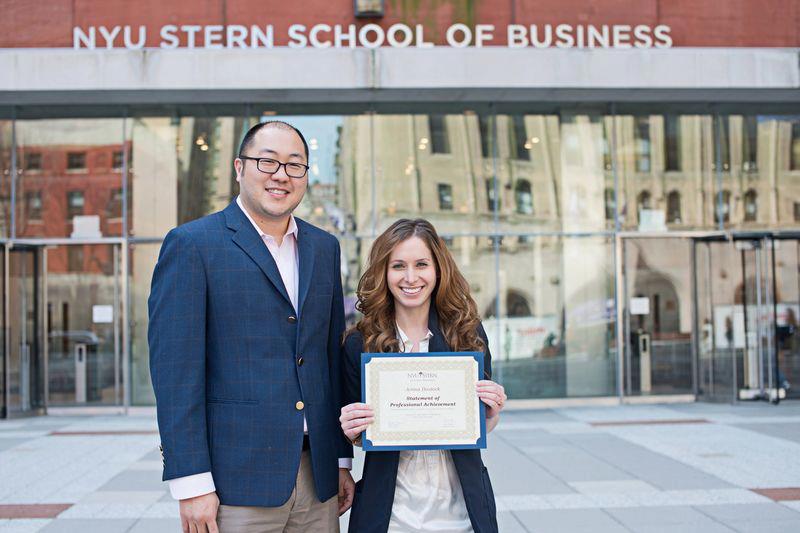 by Kate Wendleton, CEO of The Five O’Clock Club. Kate is an authority on job searching and career development. She has appeared on the Today show, CNN, CNBC, Larry King Live, National Public Radio, and CBS, as well as in the Economist, the New York Times, the Chicago Tribune, the Wall Street Journal, Fortune magazine, BusinessWeek, and other national media. A former CFO of two small companies, she has twenty years of business-management experience in manufacturing & service businesses.
by Kate Wendleton, CEO of The Five O’Clock Club. Kate is an authority on job searching and career development. She has appeared on the Today show, CNN, CNBC, Larry King Live, National Public Radio, and CBS, as well as in the Economist, the New York Times, the Chicago Tribune, the Wall Street Journal, Fortune magazine, BusinessWeek, and other national media. A former CFO of two small companies, she has twenty years of business-management experience in manufacturing & service businesses.
Today’s job market is not for the faint of heart. Unemployment seems stuck at just over 9 percent, so whether you’re laid off and looking or simply desperate to get out of a dead end job, you’ve got a lot of competition. And if you’ve just emailed your résumé in response to yet another Craigslist or Monster.com job posting, take a deep breath and back away from the keyboard. I have some good news and some bad news.
First the bad news: You’re doing it wrong. When you answer a posted ad, you’re competing with hundreds, even thousands, of other job applicants.
Now for the good news: People are getting hired, even in this job market. In fact, at the Five O’Clock Club, the nation’s premier career coaching and outplacement network, members who command a $200,000+ pay rate are getting jobs in less than six months. Here are a few tips from the Five O’Clock Club methodology:
Don’t jump in without a plan. Most job hunters feel like they have to find a new job…yesterday. And while, admittedly, sooner is better than later, our methodology stresses the importance of first taking the time to do the necessary planning. It helps people realize exactly what they want and ultimately lead to quicker searches.
Set targets—and keep them in your sights. You have to set targets for what you want to do and where you want to work. Basically, this means narrowing down the industries you want to work in, the positions you want to hold, the geographic areas you’re willing to move to, and so forth.
Remember, there’s no DIY in “job search.” The big fad for many outplacement services these days is to do everything online. Unfortunately, they leave job hunters without the one-on-one coaching that is necessary to keep them positive and on track. Find a program with private or small group coaching that works for you. At The Five O’Clock Club, members meet with professional coaches and peers on a weekly basis in a friendly, club-type format.
“Card” yourself. Every job hunter should have a special 3×5 index card that holds the personalized keys to their job hunting success. Your card will include a short pitch about yourself to use when you meet a new contact, in interviews, or at other events or meetings. It should also include three or four of your personal accomplishments. And finally, your card should include the one question you are most afraid they are going to ask you in an interview along with your answer.
Shape your own interview. The unfortunate reality is that managers who are hiring don’t always ask the right questions. When this is the case, as the job hunter, you have to figure out a way to get your strengths and accomplishments into the interview. This is when it is a great time to recall all of the great accomplishments you have on your index card and use them to keep the interview moving forward.
Network with the big dogs. We talk to people all the time who say they’ve been networking for a year and have met a hundred people. Well, unfortunately, they are often the wrong hundred people. Networking that counts happens when you are contacting people who are one or two levels higher than you are. You’re not going to get a job until you talk to the right people who are more senior than you and who will think of you when there is an opening at their company.
Don’t be afraid to be a “pest.” Follow up, follow up, and follow up again. After you interview with a company or meet with a senior-level contact, that isn’t the end of the road. You need to spend just as much time developing that relationship after you’ve met with her as you did prior to the meeting. You have to follow up…repeatedly.
If you get an offer, don’t assume you’re home free. Aim to have three concurrent offers in the works at any one time. These offers don’t have to be jobs that you actually want to take, but having them in the works prevents you from slowing your search when you think you are about to get hired. It also gives you a psychological edge. Having multiple offers also helps keep you positive. It helps you keep your momentum going.
Remember, you’re not just looking for “a job.” You’re taking the next step in developing and shaping your career. Your skills are valuable. You do have something to offer. And somewhere out there is a company that wants and needs that something. You owe it to yourself to do what it takes to find them.



